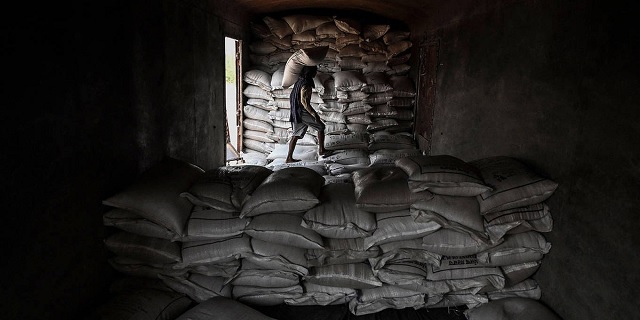
Determining how to achieve adequate food for all is the right of citizens and the duty of governments
COMMENT | NORA MCKEON | When I was a child, my father, who had witnessed the drafting of the Universal Declaration of Human Rights, told me how common ground was sought around shared principles in a world fractured by the Cold War. The Declaration, adopted in 1948, upheld a series of basic rights, including to adequate food. States have the duty to protect, respect, and fulfill such rights and can be called to account if they fail to do so.
United Nations membership grew rapidly in the 1960s, when many former colonies gained independence and subsequently pushed for greater equity in global governance. The International Covenant on Economic, Social, and Cultural Rights, adopted by the UN General Assembly in 1966, called on signatories to ensure an equitable distribution of world food supplies in relation to need.
The oil-supply shocks and stagflation of the mid-1970s shifted the momentum away from state-led, rights-based governance to neoliberalism as the dominant policymaking paradigm. This approach was based on the misguided beliefs that unfettered markets allocate resources most efficiently, economic globalisation benefits all countries, and the private sector provides goods and services more effectively than the public sector.
From the 1980s, the neoliberal structural-adjustment programs imposed by the World Bank and the International Monetary Fund on cash-strapped countries, coupled with the advent of the World Trade Organisation, restricted the policy space of governments in the Global South. The adjustment programs called for governments to roll back regulations – including labour and environmental protections that were deemed a hinderance to free trade and to open their markets to imports of subsidised food products.
The resulting globalised, corporate-led industrial food system, which promised to improve food security worldwide, has been a dismal failure. Citizens have been left to pay the price for neoliberal policies: fragile supply chains, workers without rights, a worsening climate crisis, severely diminished biodiversity, reduced access to healthy food, unsustainable diets, and extreme economic inequality. With hunger and malnutrition on the rise, it is time for a radical course correction.
Reforming the global industrial food system will be difficult, in part because it is characterised by an extremely high concentration of power in the hands of a few multinational agribusiness companies. Only a handful of firms dominate the global grain and fertilizer markets, a position that has enabled profiteering when supply chains break down, as they did during the COVID-19 pandemic and following Russia’s full-scale invasion of Ukraine.
Backed by powerful commodity-exporting countries, neoliberal policies have promoted industrial production of export crops at the expense of domestic food production by smallholders, transforming Global South countries into food importers vulnerable to price spikes. Financial power also buys narrative power, which can be used to praise the latest food tech. No one should care that pesticides are decimating bee populations if corporations can turn tiny drones into artificial pollinators (all for a price, of course).
The latest manifestation of this concentrated corporate power is multinationals’ attempts to gain control of global food governance from the rights-based intergovernmental system. In 2010, the World Economic Forum launched what has come to be called a multi-stakeholder approach to governance in which everyone has a seat at the table. But this framework is far less inclusive than it sounds. When the roles, responsibilities, and interests of different actors are ignored, and power imbalances are disregarded, corporations inevitably prevail over the less powerful, and government accountability and human rights are set aside.
Inviting corporations to join the decision-making process tips the scales in favour of industrial, chemical-heavy monoculture – a move justified by the neoliberal narrative that we desperately need to harness corporate investment and innovation to increase food production. In reality, the world produces more than enough to feed everyone; the problem is unequal access, which requires political, not technical, solutions.
Supporting small family farmers, who produce a significant proportion of the world’s food and reach consumers through local markets rather than global supply chains, requires an entirely different policy framework. But why would multinational corporations advocate an approach that goes against their interests?
The UN Food Systems Summit (UNFSS) in September 2021 was the apotheosis of “multi-stakeholderism.” Organised without a mandate from governments, and with strong participation by agrifood corporations and the Gates Foundation, the summit did not address the right to food and, in the words of Michael Fakhri, the UN Special Rapporteur on the Right to Food, was disconnected from “people’s real needs.” The summit’s “Stocktaking Moment,” scheduled for late July, is the first global follow-up to this non-event.
Many civil-society organisations that fight for people’s right to choose the structure of their food systems have contested both events. These groups prefer platforms like the UN Committee on World Food Security, which includes constituencies most affected by food insecurity, focuses on the structural causes of hunger and inequality, and promotes accountability by reserving voting for governments. The People’s Autonomous Response to the UNFSS a coalition of such groups held public events in mid-July to highlight power imbalances that challenge democratic food governance and to consider the future of multilateralism.
Determining how to achieve adequate food for all is the right of citizens and the duty of governments. Those concerned with making profits should have no place at the table.
*****

Nora McKeon, a former chief of civil society relations at the Food and Agriculture Organization of the United Nations, teaches at Roma Tre University and the International University College of Turin. She is the author, most recently, of ` Food Security Governance: Empowering Communities, Regulating Corporations’ (Routledge, 2015).
Copyright: Project Syndicate, 2023.
 The Independent Uganda: You get the Truth we Pay the Price
The Independent Uganda: You get the Truth we Pay the Price



